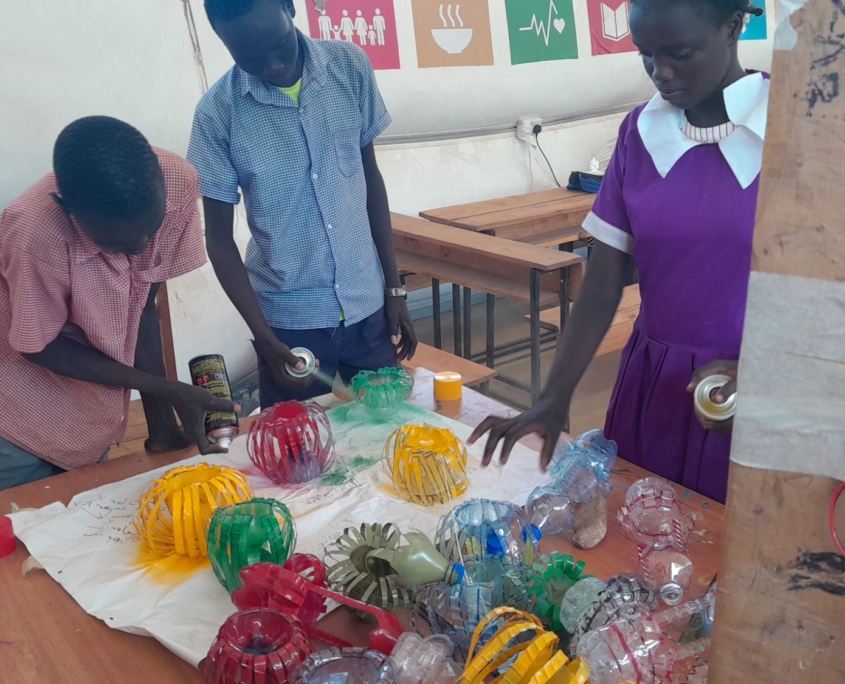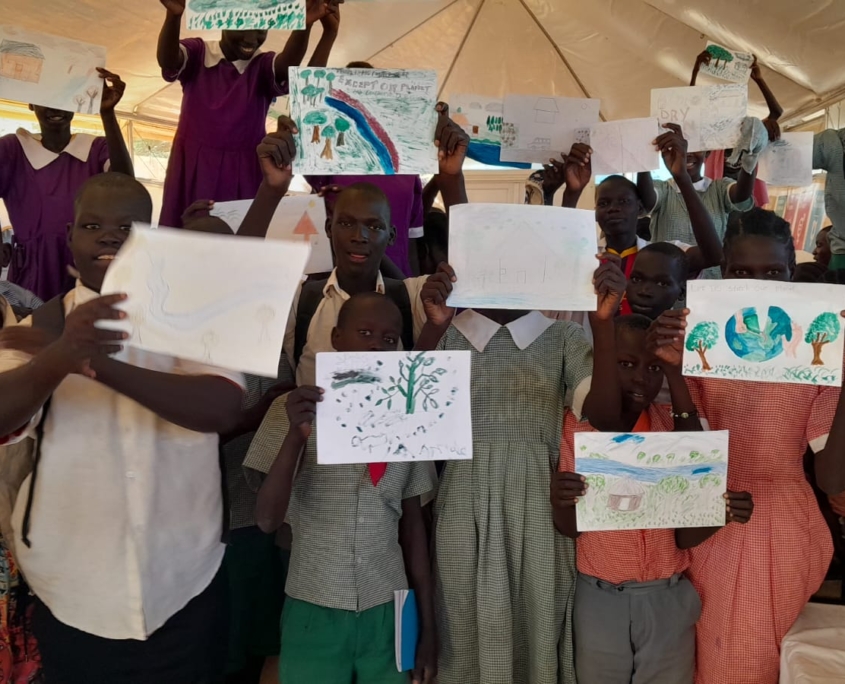Climate Action School Spotlight: Innovation Through Local Resourses
School: TAG Innovation Lab
Location: Kakuma Refugee Camp, Kenya
Students’ age: 10 – 16 Years
Number of students involved: 65
The Kakuma Refugee Camp in Kenya hosts 196,000 refugees who have fled war and hunger from neighboring countries like Sudan, D.R.C., and Somalia. The camp has 24 schools running, including two of TAG’s Innovation Lab Schools., launched in 2015 as an educational program to raise the bar of education in the camp—by teaching refugee students through Skype and creating a network of global like-minded teachers.
In 2021, the students, with guidance from their lead teacher, Franco Ohisa designed and built solar lamps using solar panels and batteries, providing sustainable lighting solutions to their community. But their creativity and innovation didn’t stop there,n the spirit of collaboration, schools in the camp selected 100 students to plant 20 neem trees to contribute to reforestation efforts in the area. Students had learned about rising global temperatures tormenting the area for some time. To combat this, , the students displayed resourcefulness by creating electric fans from available local resources like batteries, propellers from recycled plastics, and electric motors.
“These projects showcased the students’ dedication to combatting climate change and finding innovative solutions through practical interventions. We may be refugees in Kakuma but we have an unwavering desire to defend the environment. As a team, we rise as climate protectors, paving the way for a sustainable future. Our voices from Kakuma, a location of tenacity and resolve, are amplified at Innovation Lab School. Together, we create a symphony of change that echoes far beyond these boundaries using climate action as our melody.”
According to Franco, one of their biggest takeaways from the program was the virtual interactions, especially the opportunity to interact with the president of Seychelles, James Michel Alix, during Climate Action Day 2021. Additionally, the virtual interactions involved learning about climate change for six weeks during STEM classes and focusing on essential skills like creativity, problem-solving, and empathy.
Moreover, the students participated in the “Build the Change Challenge,” where they designed an energy-efficient school environment. They successfully developed a system that collected rainwater from the roof and pumped it into a water tank, demonstrating their commitment to sustainable water management. These projects showcased the students’ dedication to combatting climate change and finding innovative solutions through practical interventions.









